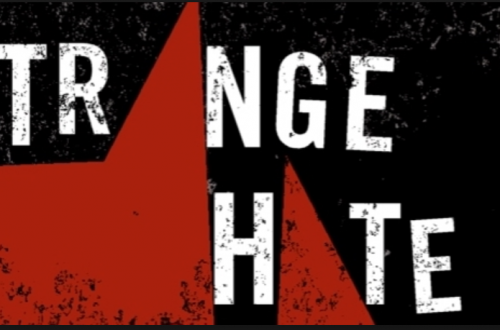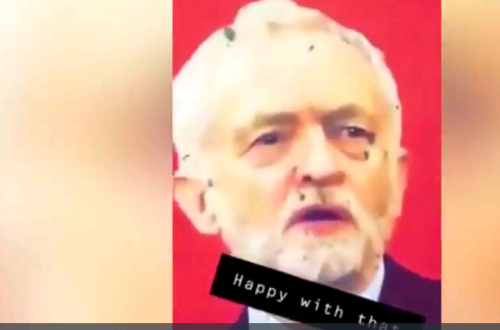This is a guest post by Joseph Weissman
Superb news following Howard Jacobson’s Man Booker 2010 prize win.
Peruvian author Mario Vargas Llosa has won the Nobel Prize for Literature 2010. Vargas Llosa is the first Spanish-language writer to have won the prize since Octavio Paz in 1990.
On The Guardian, Benedict Page profiles five of Vargas Llosa’s best works. Vargas Llosa’s topics range from the harshness of military academies, to the evils of dictatorship and authoritarianism, to the chaos of human revolt amidst apocalyptic fervour.
To this day, Vargas Llosa has a hugely positive influence over Peruvian politics. Last month, he led protests against controversial legislation the Peruvian President Alan Garcia wanted to introduce. This legislation would have led to amnesty for soldiers who had committed atrocities during Peru’s civil war. Following Vargas Llosa’s protests, Garcia asked congress to cancel the legislation.
As well as his interventions in domestic politics and his masterful writings on right-wing dictatorship, Vargas Llosa is also opposed to Far Left regimes in Latin America.
Vargas Llosa once supported the Cuban Revolution, but has long since denounced Fidel Castro’s communism, authoritarianism and censorship. He is an outspoken critic of the Chavez regime.
Last year, Hugo Chavez declined to debate with Vargas Llosa on live television. In response, Vargas Llosa famously concluded that “because caudillos can’t dialogue they don’t dialogue.”
Vargas Llosa has accused Bolivia’s President Evo Morales of using ethnicity as ideology. He has lamented both Chavez and Morales as deeply undemocratic.
Suffice to say, Evo Morales is not happy with Vargas Llosa’s Nobel Prize win. This week he has commented on the prize awarded to Vargas Llosa and the Nobel Peace prize given to Chinese intellectual and dissident Liu Xiaobo.
Morales moaned that both decisions are “suspect” because these men were “imperialist” and had the same “tendencies” as Barack Obama. Morales added:
“I’ve reached the conclusion that the Nobel Peace Prize will never be in favour of socialist movements or anti-capitalist and anti-imperialist personalities. I am convinced of this.”
Morales isn’t the only person upset by the decision.
Many who claim to be on the left are now analysing Vargas Llosa’s politics and saying he should never have won the prize. Swedish literary critic Ulrika Milles announced she was “really angry” about Vargas Llosa’s win because she didn’t think he was a real socialist. Vargas Llosa’s win was criticised in Sweden’s largest newspaper Aftonbladet across three separate articles.
In response, Johan Norberg has written a fantastic article at Spiked Online. Here are some excerpts:
People who never voiced any concerns about the politics of other Nobel Prize winners – like Wisława Szymborska, who wrote poetic celebrations of Lenin and Stalin; Günter Grass, who praised Cuba’s dictatorship; Harold Pinter, who supported Slobodan Milošević; José Saramago, who purged anti-Stalinists from the revolutionary newspaper he edited – thought that the Swedish Academy had finally crossed a line. Mario Vargas Llosa’s politics apparently should have disqualified him from any prize considerations. He is after all a classical liberal in the tradition of John Locke and Adam Smith.
[…]
He can make lightweight subjects seem serious and important, and he can write about misery and tragedy in a humorous, ironic way.
But before you get carried away and conclude that Vargas Llosa deserves the prize: did I forget to tell you that he is not a socialist? Well, he was. He was a convinced Communist who supported the Cuban revolution. He moved on not because he was no longer able to sympathise with the poor and oppressed, but because he still did when others began to identify more with the revolutionaries than with the people in whose name they made the revolution. He saw that Castro persecuted homosexuals and imprisoned dissenters. While other socialists kept quiet and thought that the dream justified the means, Vargas Llosa began to ask himself the difficult questions about why his ideals looked more like prison camps than socialist utopias when realised.
That is when the author began to think that the centralisation of power and wealth to the government led to authoritarianism, and that trade barriers, regulations and the absence of property rights protected the powerful and made it impossible for the poor to start businesses and build a life of their own. He became a classical liberal, forever fighting against the corrupt and the authoritarian, no matter how they disguised themselves – whether as military juntas, mercantilist right-wingers or socialist dictators – and he took up the fight for the rule of law and property rights for the poor and oppressed.
The attempts to portray Vargas Llosa as a supporter of the authoritarian, conservative right in Latin America are just embarrassing. The only piece of evidence in the Aftonbladet article was that he supported Sebastián Piñera in Chile’s last presidential election – which doesn’t make sense in any way since Piñera is a moderate, democratic politician who has attacked the authoritarian tradition of Chile’s right and voted against Pinochet in the referendum on his rule in 1988.
Vargas Llosa’s attempt to hold all rulers to the same standards is what makes the claim that he betrayed the left so revealing. A lot of intellectuals have condemned rightist dictatorships in Peru and Chile, and a lot of intellectuals have condemned leftist dictatorships in Cuba and Nicaragua, but few have, like Vargas Llosa, condemned them both.
If that is an attack on the left, it is only because that left has put its hope in successive generations of caudillos like Castro and Chávez. Anyone who insists that the same democratic rules should apply to their heroes becomes a traitor, a quitter, a rightist. He is the slave on their chariots, whispering that all glory is fleeting and that thou are mortal. And that’s not a popular role to play. As Vargas Llosa once wrote: ‘For reasons that elude me, anyone defending freedom of expression, free elections and political pluralism in Latin America is known as a right-winger among the area’s intellectuals.’
The attempts to politicise a prize in literature, and the demands that authors should be card-carrying leftists, are not very attractive. But perhaps the critics have a point after all. Perhaps we can’t separate Vargas Llosa’s novels from his politics, his literature from his belief in liberty. In an essay on writing he explained that ‘all good literature is radical, and poses radical questions about the world in which we live’, and that literature is ‘the food of the rebellious spirit, the promulgator of non-conformities’.
It can even be said that the Swedish Academy agrees, because it gave Vargas Llosa the prize ‘for his cartography of structures of power and his trenchant images of the individual’s resistance, revolt and defeat’. The difference between him and his old friends-turned-opponents is that he takes that power and that resistance seriously. They are not just fiction.


